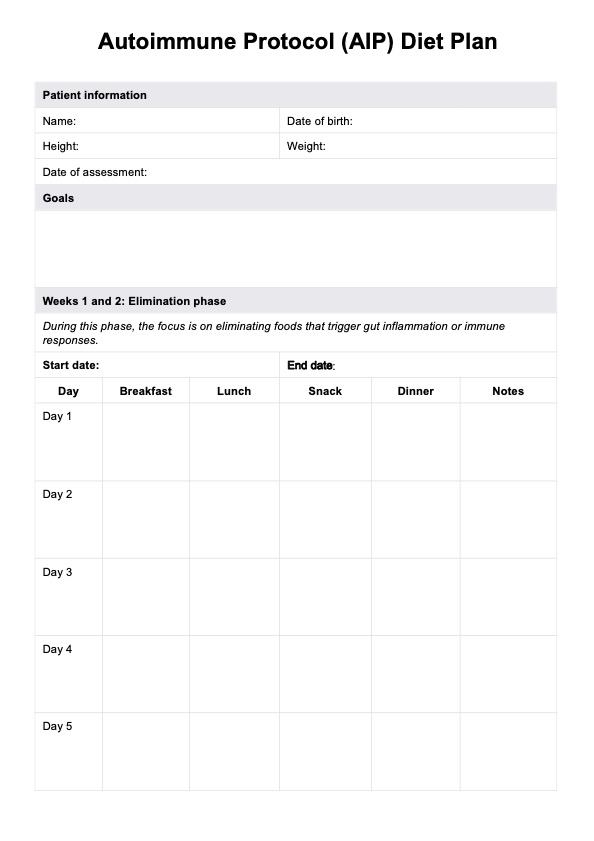An autoimmune protocol (AIP) meal plan is a structured outline of meals and snacks designed to follow the principles of the Autoimmune Protocol diet. It prioritizes nutrient-dense, anti-inflammatory foods while eliminating those known to trigger autoimmune symptoms.

AIP Diet Plan PDF
Learn how the autoimmune protocol (AIP) diet works. Download a free blank AIP Diet Plan PDF template for easy planning and clinical documentation.
AIP Diet Plan PDF Template
Commonly asked questions
The autoimmune protocol (AIP) diet excludes grains, legumes, dairy, nightshade vegetables, processed foods, and artificial sweeteners. These foods are avoided because they can contribute to inflammation and exacerbate autoimmune symptoms.
The effectiveness of the autoimmune protocol (AIP) diet varies, but most individuals notice improvements within 4-6 weeks during the elimination phase. Long-term results depend on adherence to the diet and identifying specific food triggers during the reintroduction phase.
EHR and practice management software
Get started for free
*No credit card required
Free
$0/usd
Unlimited clients
Telehealth
1GB of storage
Client portal text
Automated billing and online payments











